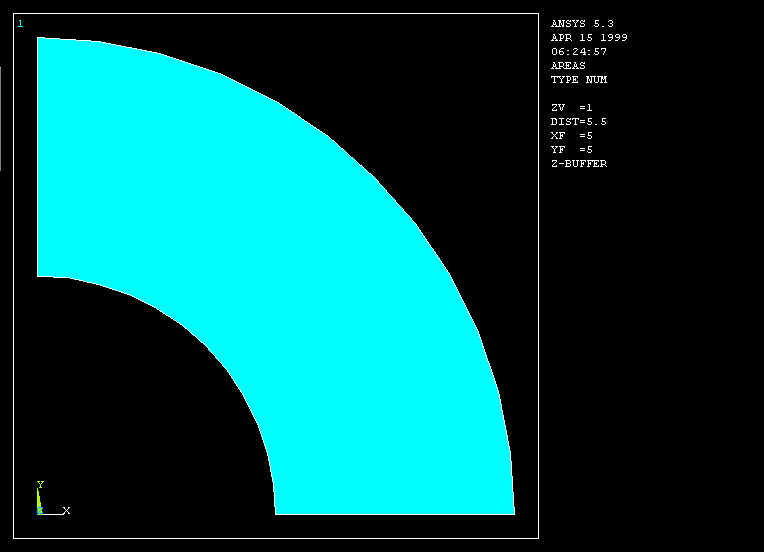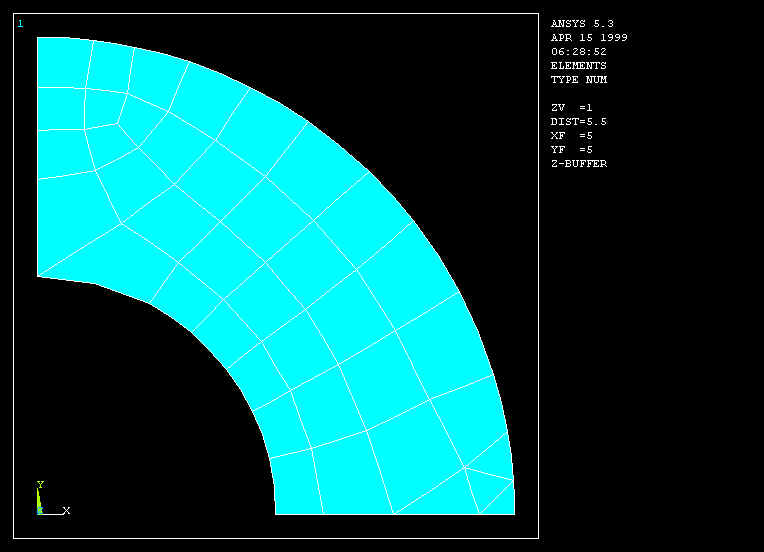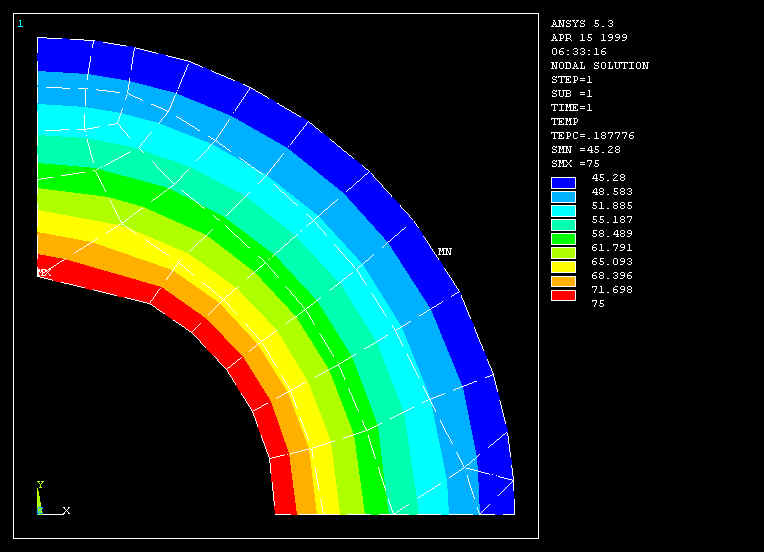
Temperature distribution in a Cylinder
We wish to compute the temperature distribution in a long steel cylinder with inner radius 5 inches and outer radius 10 inches. The interior of the cylinder is kept at 75 deg F, and heat is lost on the exterior by convection to a fluid whose temperature is 40 deg F. The convection coefficient is 0.56 BTU/hr-sq.in-F and the thermal conductivity for steel is 0.69 BTU/hr-in-F.
1. Start ANSYS and assign a job name to the project. Run Interactive -> set working directory and jobname.
2. Preferences -> Thermal will show -> OK
3. Recognize symmetry of the problem, and a quadrant of a section through the cylinder is created using ANSYS area creation tools. Preprocessor -> Modeling -> Create -> Areas -> Circle -> Partial annulus

The following geometry is created.

4. Preprocessor -> Element Type -> Add/Edit/Delete -> Add -> Thermal Solid -> Solid 8 node 77 -> OK -> Close
5. Preprocessor -> Material Props -> Isotropic -> Material Number 1 -> OK
EX = 3.E7 (psi)
DENS = 7.36E-4 (lb sec^2/in^4)
ALPHAX = 6.5E-6
PRXY = 0.3
KXX = 0.69 (BTU/hr-in-F)
6. Mesh the area and refine using methods discussed in previous examples.

7. Preprocessor -> Loads -> Apply -> Temperatures -> Nodes
Select the nodes on the interior and set the temperature to 75.
8. Preprocessor -> Loads -> Apply -> Convection -> Lines
Select the lines defining the outer surface and set the convection coefficient to 0.56 and the fluid temp to 40.
9. Preprocessor -> Loads -> Apply -> Heat Flux -> Lines
To account for symmetry, select the vertical and horizontal lines of symmetry and set the heat flux to zero.

10. Solution -> Solve current LS
11. General Postprocessor -> Plot Results -> Nodal Solution -> Temperatures

The temperature on the interior is 75 F and on the outside wall it is found to be 45. These results can be checked using results from heat transfer theory.